‘Nasty’ Filipinas join Jan 21 Women’s March: ‘It felt like Edsa’
By Cristina DC Pastor
Thousands of Filipina Americans struck back in spades and joined millions of women in the U.S. and around the world in calling on the new government to respect issues of gender equality, women’s choice, and immigration.
“It is important to me to be there because I love my daughters, admire my LGBT friends and respect my Muslim neighbors,” said fashion model and independent filmmaker Bessie Badilla when reached by The FilAm.
Proud to call herself a “nasty woman,” Badilla joined the January 21 Women’s March in New York City that began at the UN Headquarters on Dag Hammarskjöld Plaza and ended at the Trump Tower on Fifth Avenue. Mayor Bill de Blasio said an estimated 400,000 people attended the march.
Many of the protesters in New York and in Washington D.C. where the main ‘Sisters March’ was organized, wore pink pussy hats in reference to Donald Trump bragging in a TV interview about having women around him and “grabbing them by the pussy.”Placards ridiculed Trump’s “tiny hands” (‘Tiny hands, tremendous asshole’), his hair (‘Trump: We shall overcomb’), and offered sympathy for his Slovenian wife who appeared to be uncomfortable in the limelight (‘Free Melania’). Placards made reference to his shady Russian connection and his friendship with Russian President Vladimir Putin (‘Nyet my president’) and called attention to women’s issues (‘If you don’t have a uterus, you don’t have an opinion’)
“It’s good to be able to have a little laugh,” said Christina Newhard, a graphic design professional who joined the march in D.C. with about 35 Afghan women for whom she is working on a branding campaign. Their group left on a rented bus at 5:20 a.m. and reached the capital just before 11 a.m.
“It’s for all the things we value, things like human rights and wanting decency in government. Even freedom of expression, we can’t take it for granted now,” she said when asked by The FilAm why she joined the march. “It’s important to make sure we can continue to have the space to express how we feel.”
The feeling was empowering, she said. “There’s a lot of comfort seeing the numbers. So many people made the effort to come, to send the message to all and to be clear about what’s going to happen next knowing we have allies.”
Also in D.C. was Lea Junio, a nurse from Connecticut, who came for many reasons, but mainly for women’s rights and health care.
“I believe government should not be telling women what to do with their bodies,” she said.
On the pending repeal of the Affordable Care Act – popularly known as Obamacare – she said, “I see a lot of my friends and how it will affect them when they lose their insurance.”
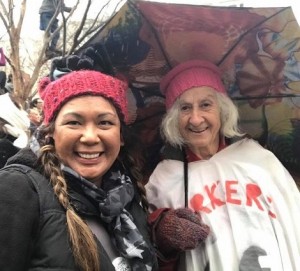
Lea Junio with a fellow marcher: ‘Government should not be telling women what to do with their bodies.’
Like Junio, registered nurse Mary Joy Garcia Dia of New York came to D.C. to voice her position on women’s rights, health care, as well as immigration. The D.C. rally is estimated at 500,000 people, according to news reports quoting city officials.
“I marched because I’m an immigrant and because I’m a health care provider,” she said.
She took exception to Trump’s ‘America First’ slogan, saying it was Filipino immigrant nurses like herself and other foreign-born nurses who came to the U.S. in the 1980s and 1990s to render “quality health care” at the height of the Aids epidemic when the country was hit by a nursing shortage.
“As an immigrant myself, it’s important for us to stand up for our own contributions to this country,” said Garcia Dia, who is currently a Program Director at the Center for Professional Nursing Practice at New York-Presbyterian Hospital. She was president of the Philippine Nurses Association-NY from 2006 to 2008. “There was a shortage in health care at the time because of fear of what Aids can do. We came and rendered quality service. This is ‘America First’ from a health care perspective.”
For Garcia Dia and Junio, the Women’s March felt like the 1986 Edsa People Power revolt all over again.In the case of Junio, who was a college senior when she joined the massive peaceful rally that deposed Philippine Dictator Ferdinand Marcos, her participation in the Women’s March was a “more responsible” response compared to Edsa which she joined to “experience what it was like.”
“This time, there is a more moral responsibility to do something and not be silent,” she said.
For Garcia Dia, the Women’s March was one “tearful” moment.
“It reminded me of our Edsa people power,” she said, pausing briefly during the interview to hold back her emotion. “There was this powerful voice around me in a peaceful rally, and I was a part of it.”
That rally turned indignant, she said, when protesters passed the Trump International Hotel on Pennsylvania Avenue. “People began to shout, show us your taxes and other things. There was a lot of anger.”

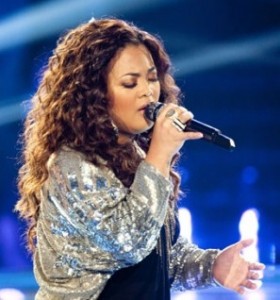
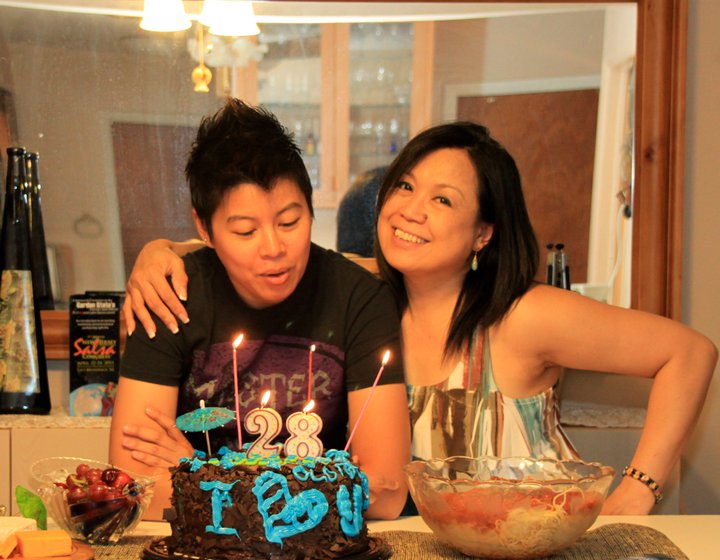


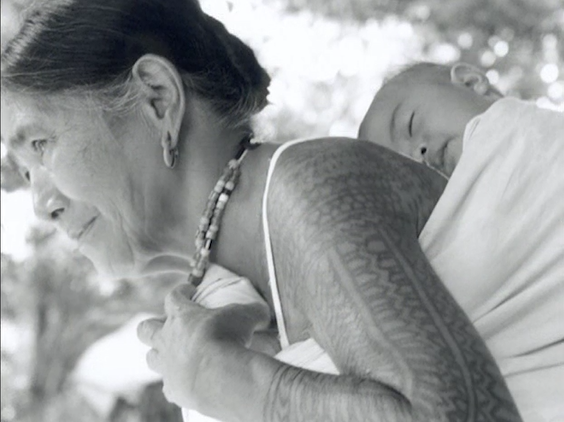

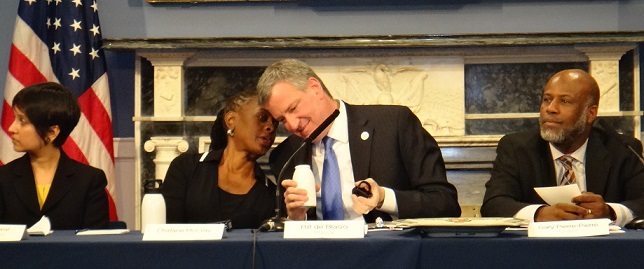
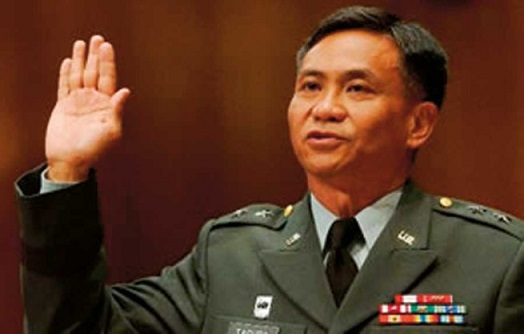
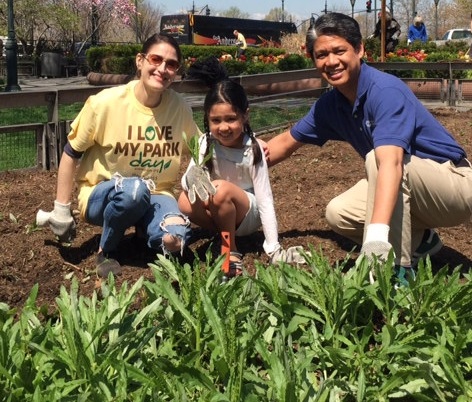
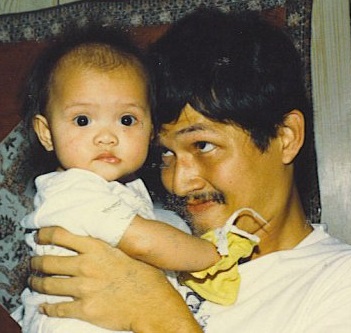


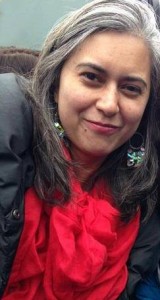
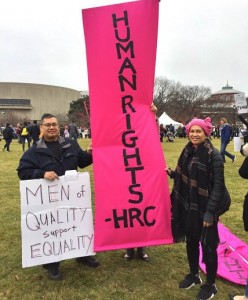





I am sure this post has touched all the internet viewers, its really really nice piece of writing.